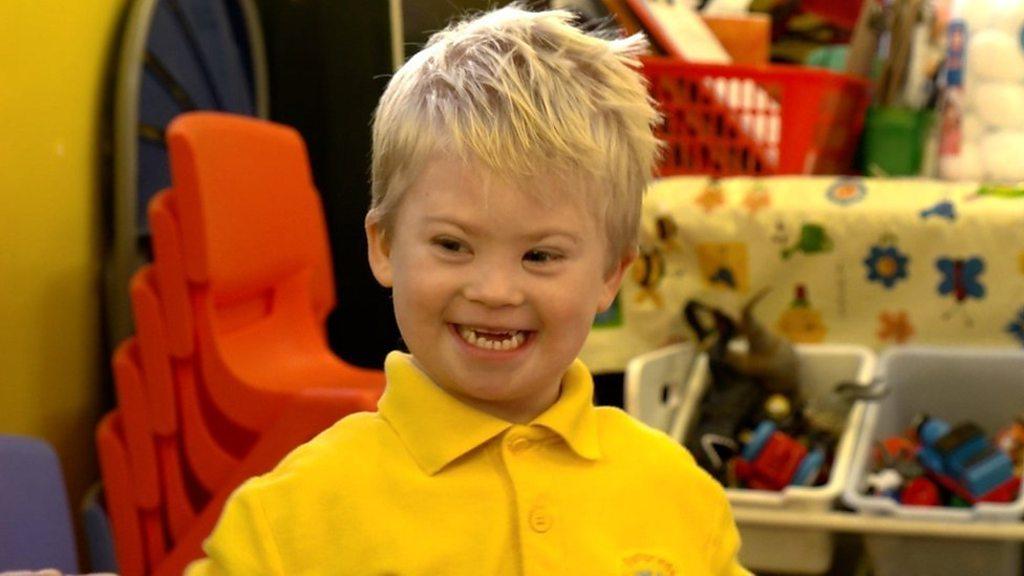Down's syndrome campaigner fights abortion ruling
- Published
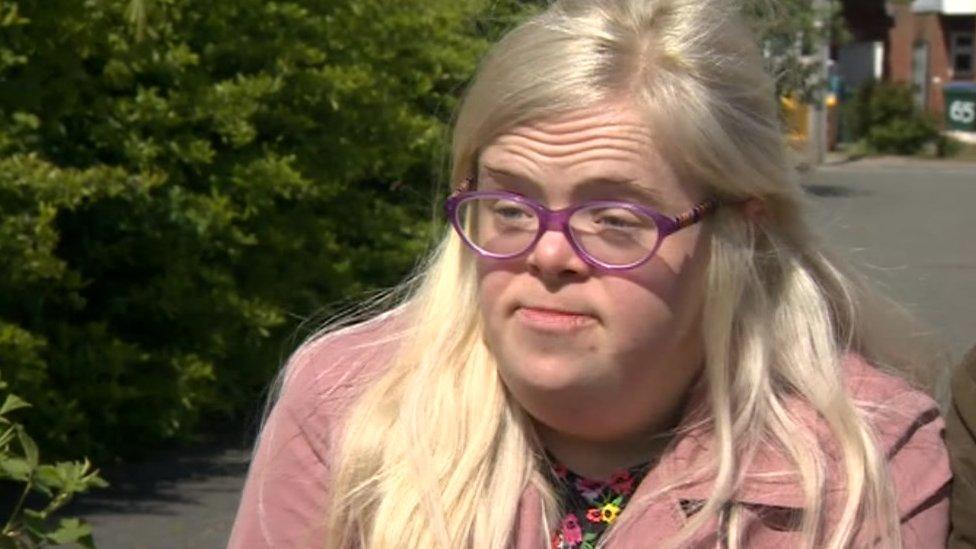
Heidi Crowter is challenging legislation allowing terminations up until birth
Abortion law, which allows foetuses with Down's syndrome to be aborted up until birth, affects the self-worth of disabled people, a court has heard.
Heidi Crowter, from Coventry, who has the condition, has challenged the legislation, saying it was unlawfully discriminatory.
Judges previously found the section of the Abortion Act pertaining to the condition to not be unlawful.
On Wednesday, the case was reconsidered by the Court of Appeal.
In England, Wales and Scotland, there is a 24-week time limit on having an abortion, but terminations are allowed up until birth if there is "a substantial risk that if the child were born it would suffer from such physical or mental abnormalities as to be seriously handicapped". This includes Down's syndrome.
Jason Coppel QC, representing Ms Crowter and others, said the effect was to stereotype life as a disabled or seriously handicapped person as not worth living and as having less life value than an able-bodied person.
He said the language used in the act was considered by some to be offensive and unacceptable.
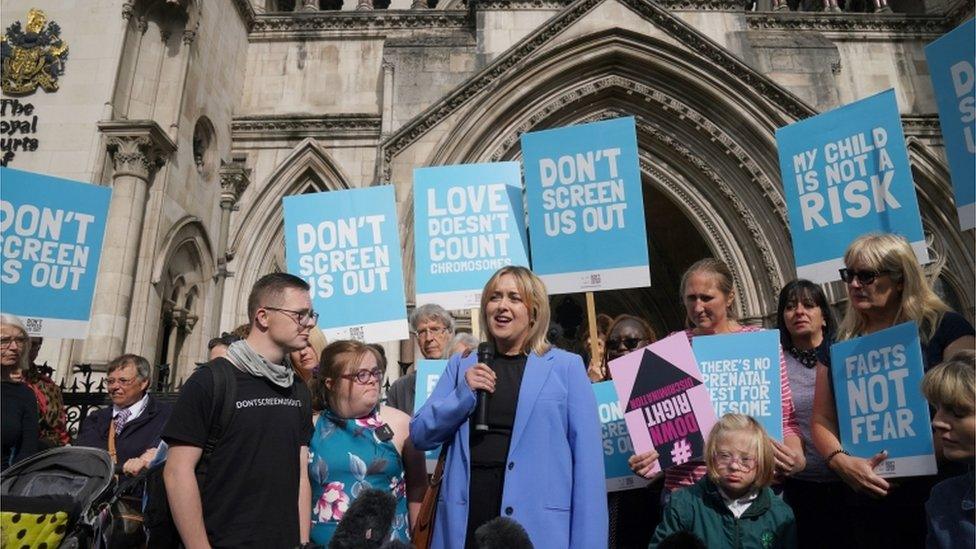
Máire Lea-Wilson (centre) brought the initial case with Heidi Crowter
Speaking to Sky News ahead of the hearing, Ms Crowter, 27, said: "In 2022, we live in a society where disabled people are valued equally after birth but not in the womb.
"I hope that the judges will agree with me that this law is discrimination and needs to be changed."
The case was initially brought by Ms Crowter with Maire Lea-Wilson, 33, from west London, whose son Aidan has Down's syndrome, and a child with the coindition, identified only as A.
Mr Coppel said: "In modern days, Down's syndrome is not a barrier to living a happy and fulfilled existence as Heidi and Aidan demonstrate."
He said the act interfered with the rights of disabled people to a private and family life, under the Human Rights Act 1998.
Julia Smyth, representing the Secretary of State for Health and Social Care, said: "The ultimate question which underlies this appeal is where society should set the limits in criminalising women for the choices they make in deciding whether or not to have an abortion.
"Obviously that raises profound social, moral and ethical questions and there are irreconcilable views on all sides of the debate."
The appeal hearing, before Lord Justice Underhill, Lady Justice Thirlwall and Lord Justice Peter Jackson, was adjourned on Wednesday afternoon and a judgment is expected at a later date.

Follow BBC West Midlands on Facebook, external, Twitter, external and Instagram, external. Send your story ideas to: newsonline.westmidlands@bbc.co.uk , external
Related topics
- Published6 July 2021
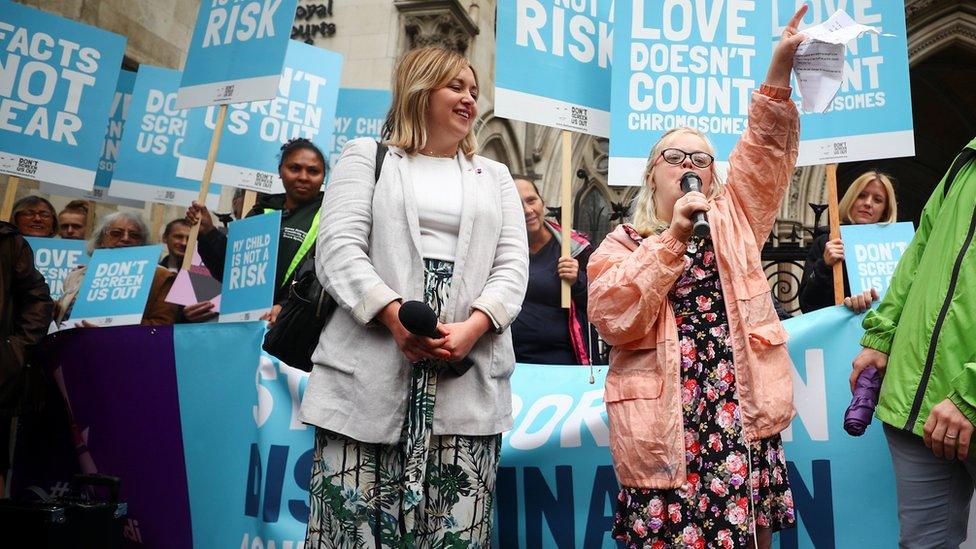
- Published23 September 2021
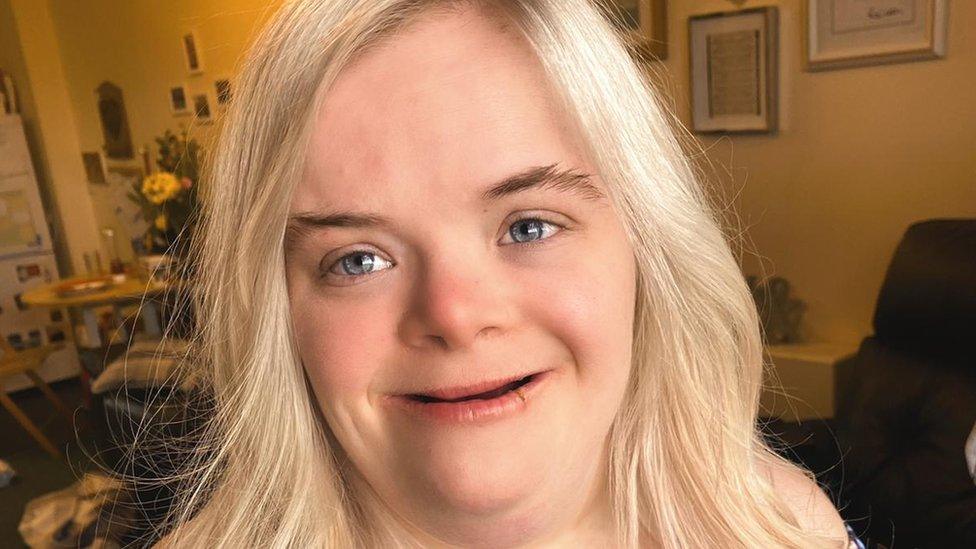
- Published5 May 2021
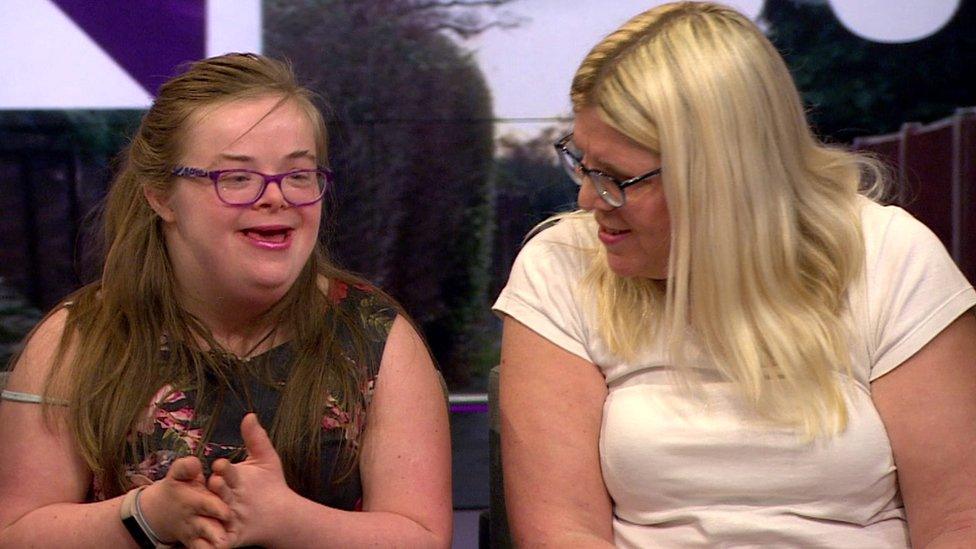
- Published9 October 2018
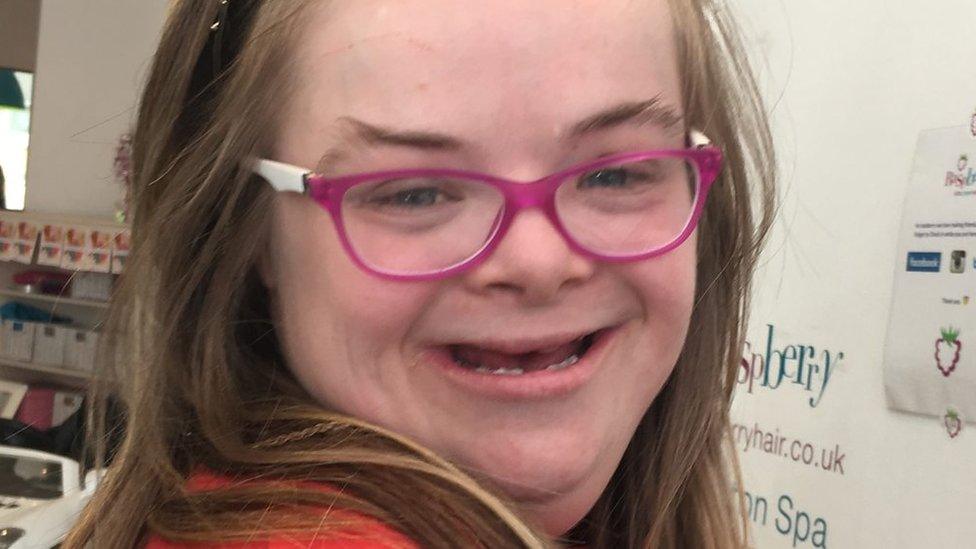
- Published6 July 2020
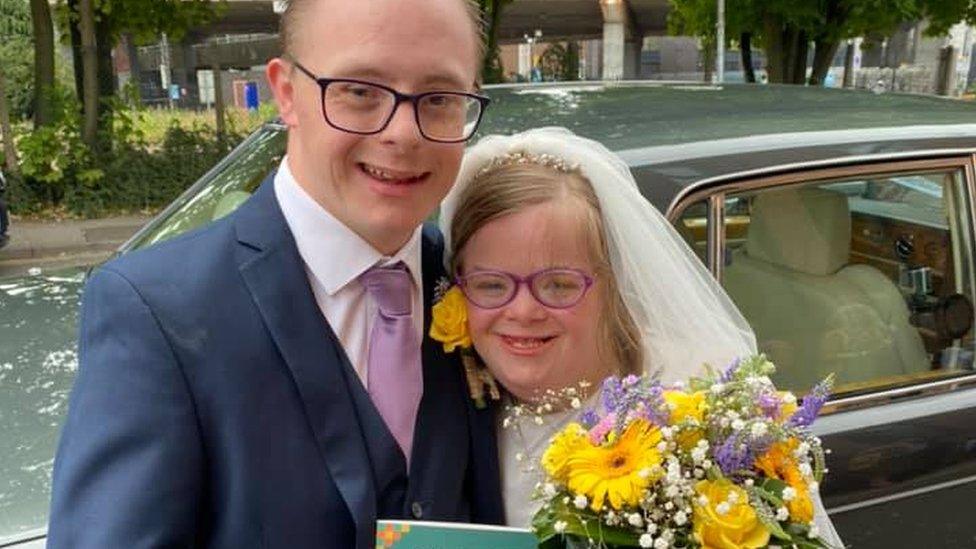
- Published24 February 2020
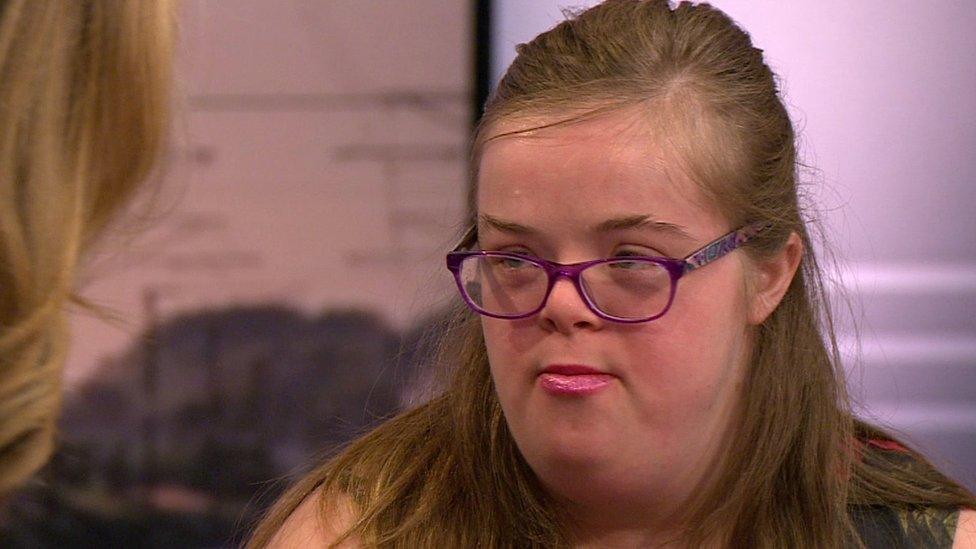
- Published13 January 2019
